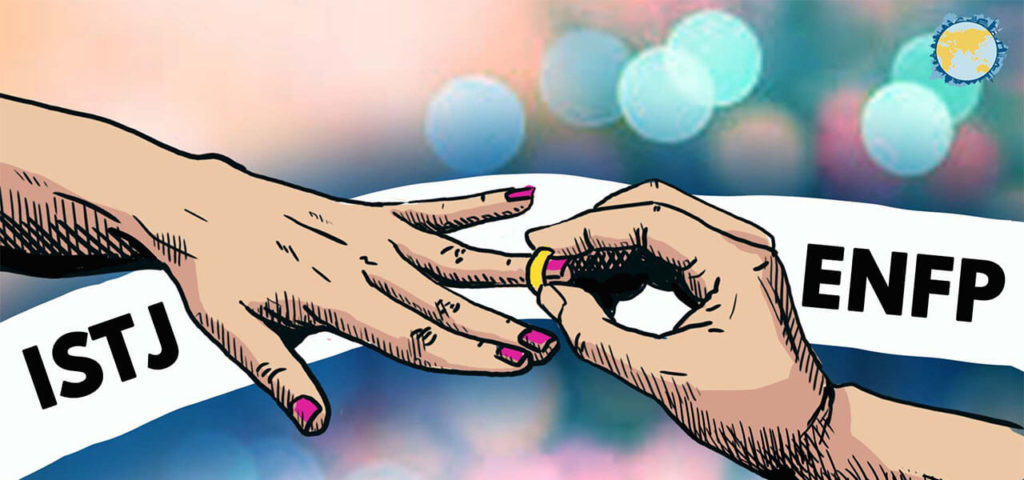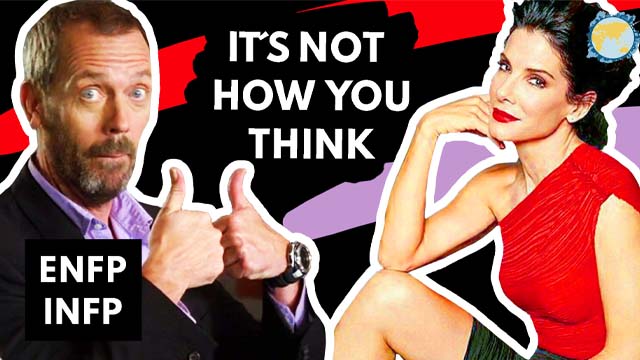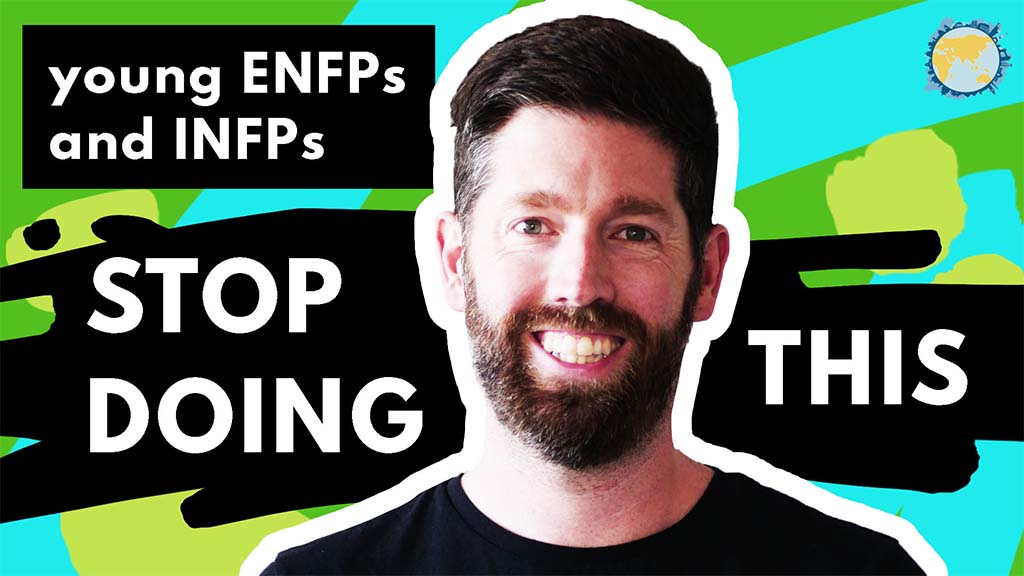Things you should know about ENFP-T personality type
Difference between ENFP-T and ENFP-A
First things first, what the heck is an ENFP? Well, you probably already know that but just in case an ENFP is one of the 16personality types, originally coming from a Myers-Briggs system, essentially, but it’s used under all types of systems and brands and whatever these days, and it is the type of personality that I am, and that this channel makes a ton of videos for, in fact, new videos every week if you happen to be an ENFP.
If you prefer reading, here is a video transcription made with Otter.ai
But the differentiation we want to look at is the difference between an ENFP-T and an ENFP-A.
Now, this is something that I believe the only website doing this is 16personalities, there might be other sites doing it now and what they’ve done is they’ve taken one of the aspects of the Big Five personality scale, which is neuroticism and they’ve added that in with their test, and they basically attached a letter to the end of all the types that indicate if you’re high or low in neuroticism, so an ENFP-T is an ENFP who scores moderate or high in neuroticism.
Now, this sounds bad, right? neuroticism does not sound like a good thing and honestly, I’m not gonna lie to you, it’s probably not the best thing to score high and there are pros and cons, though to being anywhere on any spectrum with personality types.
Otherwise, we wouldn’t have people within that spectrum. It’s just how evolution works, right and to understand this, we can look at the two aspects of neuroticism, neuroticism can break down into volatility, and withdrawal. They’re actually quite different.
Click the subscribe button, Join my Youtube Channel – We’re almost at 50K!
Neuroticism vs Volatility – Where do you fit in?
For instance, I score very high on volatility. So overall, I’m moderately low on neuroticism, but volatility – I’m high, and then withdrawal – I am very low. And so these are actually very different things, and it’s important to understand because just knowing that whether you’re an A or a T doesn’t really help you understand this, but I’ll give you the descriptions and you can probably figure out where you score okay.
Volatility is like it sounds are you are your emotions, volatiles, do you tend to change mood more often? And does your behavior change with your mood. So if something really negative happens, that you’re in a bad mood, you get easily frustrated, all this sort of thing.
That’s, that’s me. I hate to admit it, not positive. but that is me. That is one aspect, right? So if you are quite volatile, you probably like some advice on this, you probably don’t want to be with a partner who’s also volatile. Because you can see how that could go right?
You probably want to find a partner who is lower in neuroticism and more stable to to balance you out, and you probably want to work on it a little bit. And what I found does help with this a lot, it’s made a massive difference in my life: daily or close to daily exercise and eating really well for me, that’s that’s low carb, high fat tend to be healthiest.
For me, my brain functions a lot better, might be different for you, those things really help as well as consistent contact with positive people. Basically, good friends spend lots of time with good friends, play sports, we’re here I’m filming this in Spain, and there’s this group we’ve become friends with, and they play beach volleyball together after work every single day, and they’re all super happy people. It makes sense.
They’re in the sun, they’re with good friend, and they’re having a complex type of exercise every single day, right. So that’s something you can do to help if you are fairly volatile.
ENFPs and withdrawal
The other aspect is withdrawal. Withdrawal basically, is the amount of anxiety we feel about new and unknown experience.
So people who are very low in withdrawal will jump into new situations, people who are very high in withdrawal will hold back and not you know, want to go somewhere new, they’ll sort of look and be like, I don’t know, maybe I’ll play it safe, right?
This is a big difference with ENFPs. ENFP-A are the ENFP s who are more likely to jump into things and it’s one of the traits you often hear about ENFP right, that adventurous, they jump into new things, their love to try things out and you know, go to new places, start new jobs, all this sort of stuff.
If you’re an ENFP-T and you’re quite high in withdraw, that would mean that you are not going to be comfortable jumping in new situations. And you may find that you feel a lot of anxiety about quitting your job and going into the unknown of starting your own business or moving to a new country.
Now of course, being high in withdrawal can serve some purposes. It protects you from the unknown. There are many situations where wandering off into the darkness could be dangerous, especially evolutionarily.
But now these days, it probably hurts you more than it helps you We live in a very quickly changing society, and if you’re scared of new things, not going to have a positive effect and there is good news here it can definitely be improved. Now I’m going to save that for a different video.
I actually have a longer video with advice specifically for ENFP-Ts all about This topic this video I just wanted to keep on the definition really what is an ENFP-T.




